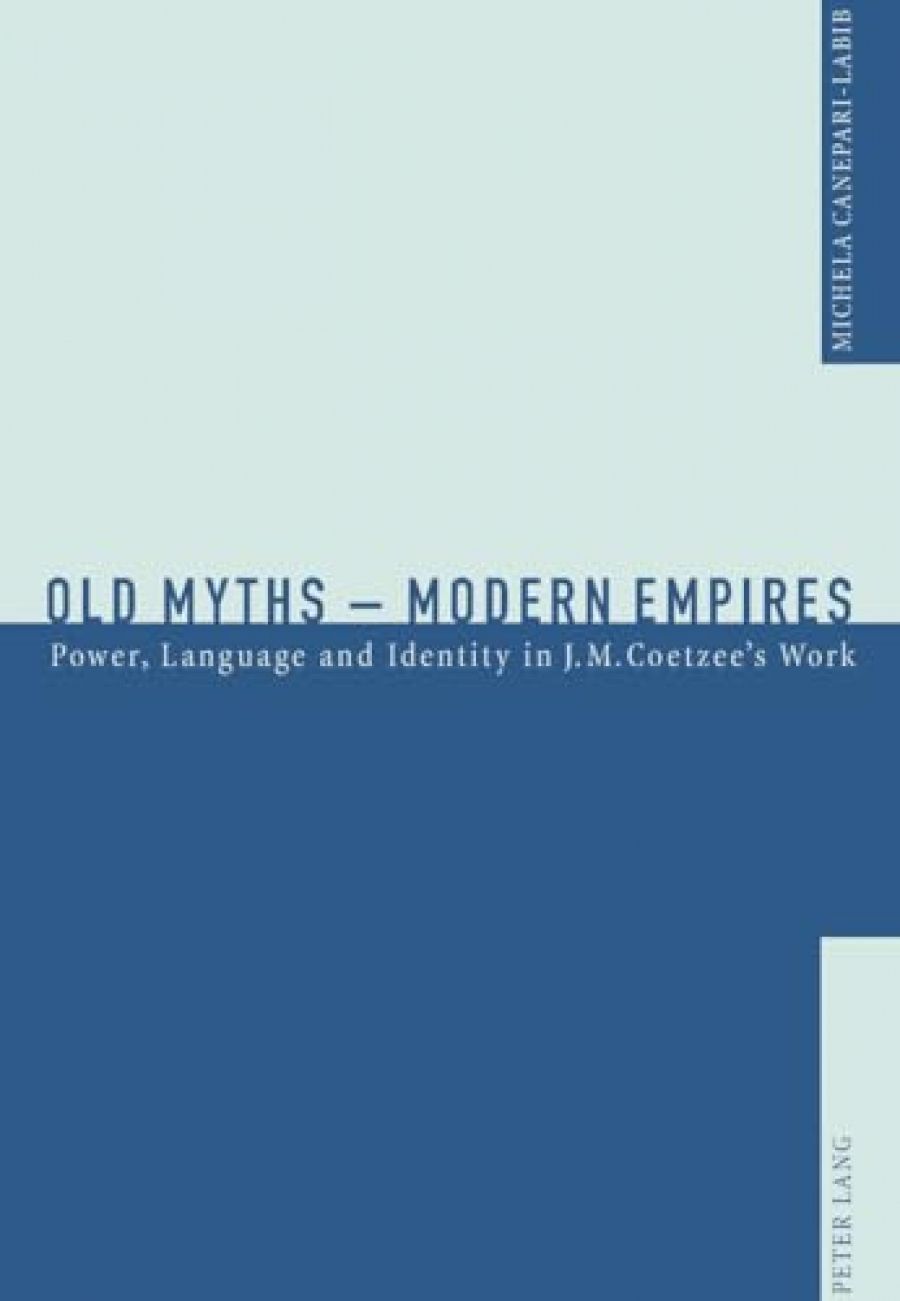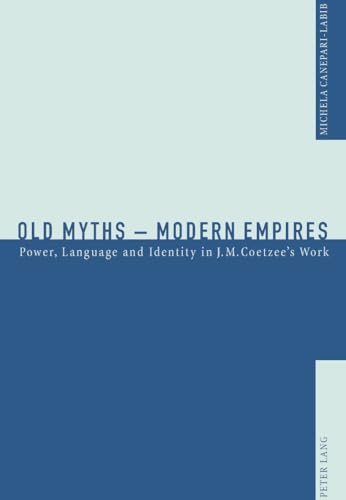
- Free Article: No
- Contents Category: Literary Studies
- Review Article: Yes
- Online Only: No
- Custom Highlight Text:
Michela Canepari-Labib is an Italian scholar of English literature and cultural theory. In Old Myths: Modern Empires, she sets out to map J.M. Coetzee’s work onto the major cultural theories of the twentieth century. Coetzee is just as familiar as she with the theories, and no doubt they have had their influence. But anyone can write novels based on Freud and Lacan: what is missing from Canepari-Labib’s account is everything that makes Coetzee worth reading.
- Book 1 Title: Old Myths
- Book 1 Subtitle: Modern empires: power, language and identity in J.M. Coetzee’s work
- Book 1 Biblio: Peter Lang, £36 pb, 314 pp
- Book 1 Cover Small (400 x 600):

- Book 1 Cover (800 x 1200):

Canepari-Labib is in Coetzee’s cheer squad. She sets out to refute all those critics who have said he is insufficiently politically engaged. According to Canepari-Labib, Coetzee has spent his whole writing career ‘denouncing’ this and that – the Vietnam war, ‘the obliterations enacted by colonialism’, even Western society as a whole. At the same time, everything he has written is taken as a metaphor for South Africa. The book was finished before Slow Man (2005) appeared, but I imagine she would manage to amputate its toes to make it fit her glass slipper, given the chance.
Some of the opinions she ascribes to Coetzee are extraordinary. Can he possibly ‘acknowledge that language is the only means human beings have at their disposal for communication’? She gives no reference, so I assume this is supposition. As for ‘denunciation’ (the word appears continually in its various forms), it has never been Coetzee’s game. Her approach, though well meaning, serves Coetzee poorly, reducing his magnificently ambiguous and subtle oeuvre to a series of partisan tracts.
It is ironic how Canepari-Labib consistently rubbishes the ‘Western philosophical tradition’, while accepting unquestioningly everything written by Foucault, Barthes and company: she seems unable to think for herself. This book is a perfect example of the way the dead hand of theory can stifle the lively art of criticism.


Comments powered by CComment